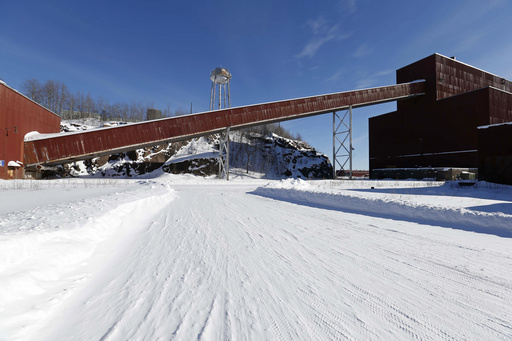
The developers of a copper-nickel mining project in northeastern Minnesota have revealed plans to conduct studies over the next year aimed at enhancing environmental safeguards and improving the mine’s cost and energy efficiency. The proposed $1 billion open-pit mine near Babbitt and processing plant near Hoyt Lakes would be Minnesota’s first copper-nickel mine, essential for the clean energy sector. The joint venture between Glencore and Teck Resources, known as NewRange Copper Nickel, was previously called PolyMet but faced setbacks due to court and regulatory hurdles.
NewRange spokesperson Bruce Richardson emphasized the focus on enhancing efficiency, reducing carbon footprint, and greenhouse gases to achieve a net environmental benefit. However, environmental groups opposing the project suggested that the plan revisions indicate fundamental flaws. Concerns were raised over the potential environmental risks of mining copper, nickel, and other metals in northeastern Minnesota, primarily due to the risk of acid mine drainage from sulfide-bearing ore.
The studies will address alternative options for mine waste storage, water treatment, production acceleration, and carbon emission reduction. Any significant modifications would trigger additional environmental assessments and permitting processes, with opportunities for public input. The current waste storage plan involves repurposing the LTV Steel iron mine tailings basin, but alternative designs or locations will be explored.
Consideration will also be given to a potential conveyor system for ore transportation to the plant, aiming to enhance environmental sustainability compared to diesel-powered trains. While the current wastewater treatment plan complies with state standards, improvements will be investigated. The company is also looking at increasing daily production but maintaining the total amount mined over the project’s lifespan to achieve operational efficiency.
Despite acquiring necessary permits in 2018, the project faced setbacks due to court rulings and regulatory issues. The water pollution permit and overall mining permit faced scrutiny, and a wetlands destruction permit was revoked by the Army Corps of Engineers. Critics, such as Friends of the Boundary Waters Wilderness, have condemned the development, accusing regulators of permitting a flawed project and failing to protect citizens.
